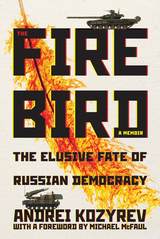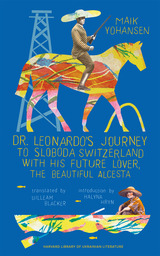
Andrei Kozyrev was foreign minister of Russia under President Boris Yeltsin from August 1991 to January 1996. During the August 1991 coup attempt against Mikhail Gorbachev, he was present when tanks moved in to seize the Russian White House, where Boris Yeltsin famously stood on a tank to address the crowd assembled. He then departed to Paris to muster international support and, if needed, to form a Russian government-in-exile. He participated in the negotiations at Brezhnev’s former hunting lodge in Belazheva, Belarus where the leaders of Russia, Ukraine, and Belarus agreed to secede from the Soviet Union and form a Commonwealth of Independent States. Kozyrev’s pro-Western orientation made him an increasingly unpopular figure in Russia as Russia’s spiraling economy and the emergence of ultra-wealthy oligarchs soured ordinary Russians on Western ideas of democracy and market capitalism.
The Firebird takes the reader into the corridors of power to provide a startling eyewitness account of the collapse of the Soviet Union, the struggle to create a democratic Russia in its place, and how the promise of a better future led to the tragic outcome that changed our world forever.

How could the West have better prepared for the fall of communism and gained a clearer picture of Russia's new political landscape? By cultivating an awareness, Nicolai Petro argues, of the deep democratic aspirations of the Russian people since Muscovite times. Petro traces the long history of those aspirations, recovering for us an understanding crucial to our formation of successful foreign policy toward Russia.
Expanding the traditional definition of political culture from single thread to continuous historical tapestry, Petro illuminates a reality previously lost to even the most rigorous Sovietology: the fragility of communism. He portrays an abiding "alternative political culture" that tells us Russia indeed possesses a democratic tradition on which its contemporary democracy rests.
Petro's analysis includes many surprising and incisive observations. In a look at the Russian Orthodox Church, he traces its long history of support for opposition sentiment during both tsarist and Soviet times and its support for democracy today. He also explores the character and power of contemporary Russian nationalism and traces its origins to the neo-Slavophile national identity that took its shape as a challenge to Bolshevik oppression. Delineating Russia's postcommunist political parties, the author reveals their roots in prerevolutionary times and explains how this continuity makes Russian political aspirations far more predictable than is commonly assumed.
Awakening us to Russia's historical involvement in the democratic quest that lies at the heart of Western values, Petro opens a path for a more meaningful, more productive understanding of modern Russia.
READERS
Browse our collection.
PUBLISHERS
See BiblioVault's publisher services.
STUDENT SERVICES
Files for college accessibility offices.
UChicago Accessibility Resources
home | accessibility | search | about | contact us
BiblioVault ® 2001 - 2024
The University of Chicago Press









